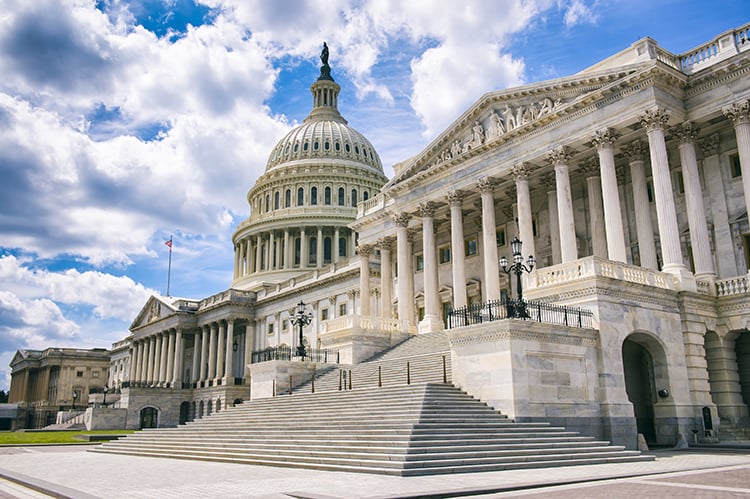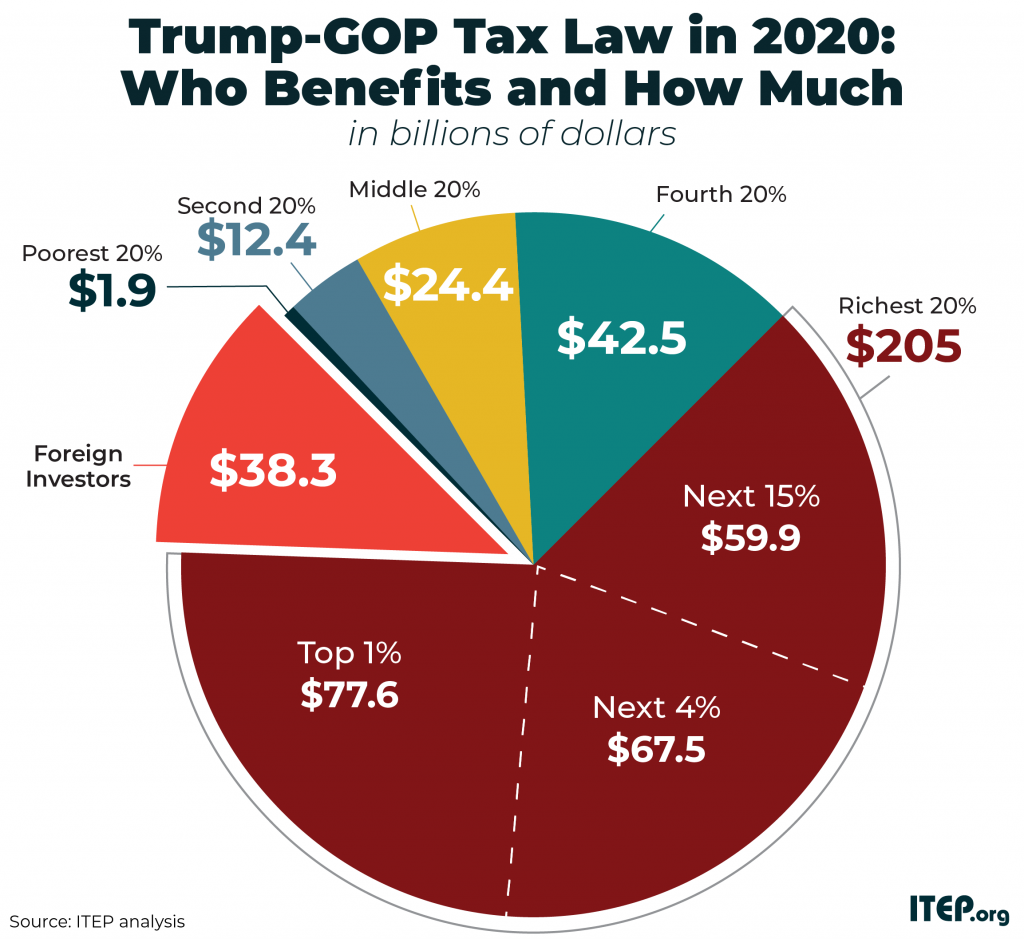It’s become popular to urge people to imagine a better world. This isn’t surprising. After forty years of mounting inequality, stagnant median wages, failure to tax the rich, lack of progress on racial equity, and neglect of the climate crisis, it can feel like a vivid imagination is the only way to get to the country and planet we deserve.
But on tax policy, the last year gives us ample evidence that lets us move far beyond imagining.
In 2020, the country was confronting unprecedented job loss, no available vaccines, and shuttered schools and businesses. And we were still dealing with the legacy of forty years of relatively stagnant wages and underinvestment in people and communities.
In early 2021, the newly inaugurated Biden administration put forth several comprehensive policies to take on immediate and long-term challenges, two of which relied in part on tax policy. Examining the plans that passed – and those that haven’t yet – illustrates how tax law shapes our lives.
The first effort, the American Rescue Plan, didn’t raise revenue or tax the rich. But it expanded the Child Tax Credit (CTC) and the Earned Income Tax Credit, and provided cash payments administered through the tax code. All told, those policies increased the income of the bottom 60 percent of American households by an average of 11 percent. For the families who struggle the most financially, the poorest 20 percent, the three policies raised incomes by an average of 33 percent. That’s a powerful punch in a country with too much inequality and poverty.
The credits pulled in families that had historically been excluded, provided resources to working class people of all races, and were attentive to both racial and economic inequity, as Brakeyshia Samms recently described. The expanded CTC reaches more of America’s lowest income families and a higher share of Black, Hispanic and white children than the previous version of the CTC did.
The American Rescue Plan took on some of the country’s biggest problems. That’s just what we want to see from public policy. But the plan, passed in the first weeks of a new administration, contained many temporary measures, successfully designed to manage a short-term health and economic crisis. It helped lead to the best annual job creation in U.S. history in 2021.
The Biden administration’s second big economic policy was a $1.2 trillion infrastructure bill, passed in November with the support of nearly all Democrats, a smattering of House Republicans, and 19 of the 50 Senate Republicans. The law contains important federal spending to provide cleaner energy, safer water, and better transit; to fix roads and bridges; to expand broadband, and more. But it didn’t do anything to block tax avoidance by rich people and corporations or to reverse the inequitable tax changes of the Trump administration.
The third policy is the major economic push christened Build Back Better. That, of course, has not become law. It passed the House late last year, but is stalled in the Senate, with all 50 Republicans opposed and one or two Democrats unwilling to support the current version.
The House-passed bill contains several excellent tax provisions. It would ensure that the 200 biggest corporations pay federal income taxes equal to at least 15 percent of the profits they report to shareholders. It would put 5 and 8 percent surcharges on income over $10 million and $25 million. It would limit some tax breaks that companies get when they move profits offshore and it includes other provisions that raise revenue. The Joint Committee on Taxation estimates that together the changes generate more than $1.4 trillion to be spent on the country’s shared needs. An additional reform that could get added, Sen. Wyden’s Billionaire’s Income Tax, would tax capital gains before assets are sold for billionaires only, raising another $557 billion.
None of these provisions have become law. And we don’t need to imagine the consequences because we can already see them.
Large businesses have only just begun releasing their 2021 annual financial reports but it’s already clear that the kind of tax avoidance we saw in 2020, when 55 profitable large corporations paid zero in taxes, will continue.
Our colleague Matt Gardner examined a few of the reports out so far and found that Netflix paid a federal corporate tax rate of just 1.1% on record profits of $5.3 billion. Amazon avoided over $5.2 billion in taxes on record profits of $35 billion. And we’ll undoubtedly find that some big profitable Fortune 500 corporations pay nothing at all on their 2021 earnings, as has been true in every year of the Trump tax law.
We don’t need to imagine because we’ve got hard facts. Passing progressive tax policy raises revenue for the things we all need and can directly take on inequality, cut poverty and raise incomes. Failing to pass those policies leaves many enormous profitable corporations paying little or nothing, lets much of the income of the wealthiest billionaires go untaxed, and levies the same modest income tax rate on millionaires as it levies on multi-multi-millionaires.
We are no longer relegated to just imagining a world with tax reform. The last year has shown us glimpses of this world. A more equitable, sustainable, prosperous future is right at our fingertips. We only need our lawmakers to close the deal and grasp it.





